Tea, Travel, Track and Field: Meet the Owners of Formosa Tea House
June 2019
Tucked under a hand-painted sign on Long’s Hill in St John’s, Formosa Tea House appears unassuming. A placard on the door advertises opening hours from noon to seven most days of the week, but, if you find the tea house closed unexpectedly, it might be because the owners are out competing in a badminton tournament.
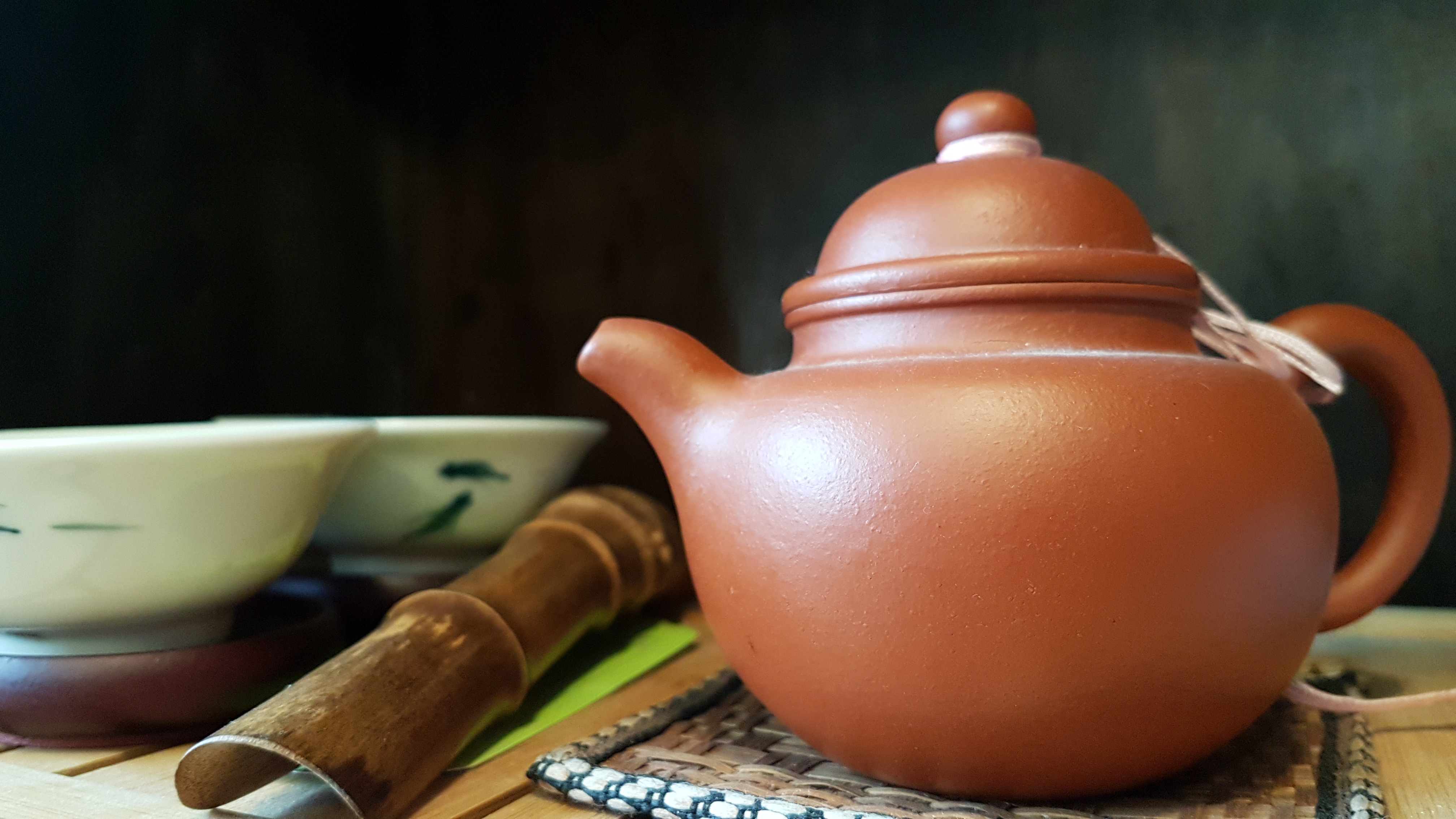
Teacups, a bamboo tea scoop, and a clay teapot
Photo courtesy author
Or taking a road trip across Europe.
Or coaching Taiwan’s national track and field team.
Formosa is run by Renaissance husband-wife duo Chien Ming Yeh and Kuei Fen Kuo. Walk inside, and you’ll immediately see their diverse interests reflected in every corner of the cozy little shop.
Shelves brimming with tea implements, woodcarvings, and jade jewellery they’ve brought from Taiwan line the walls above the tables. A bulletin board packed with photos of their globetrotting adventures hangs next to the door, over a bookcase filled with works on spirituality, travel, and sport. A back room beyond the dining area houses a sports supply shop, stocking badminton rackets, tennis balls, and golf clubs.
Fen and Chien both have a background as serious competitive athletes. One wall of the sport shop is covered with medals from their track and field careers in high school and university. Fen was a high jumper and Chien a pole vaulter.
“We have a lot of medals!” Fen laughs.
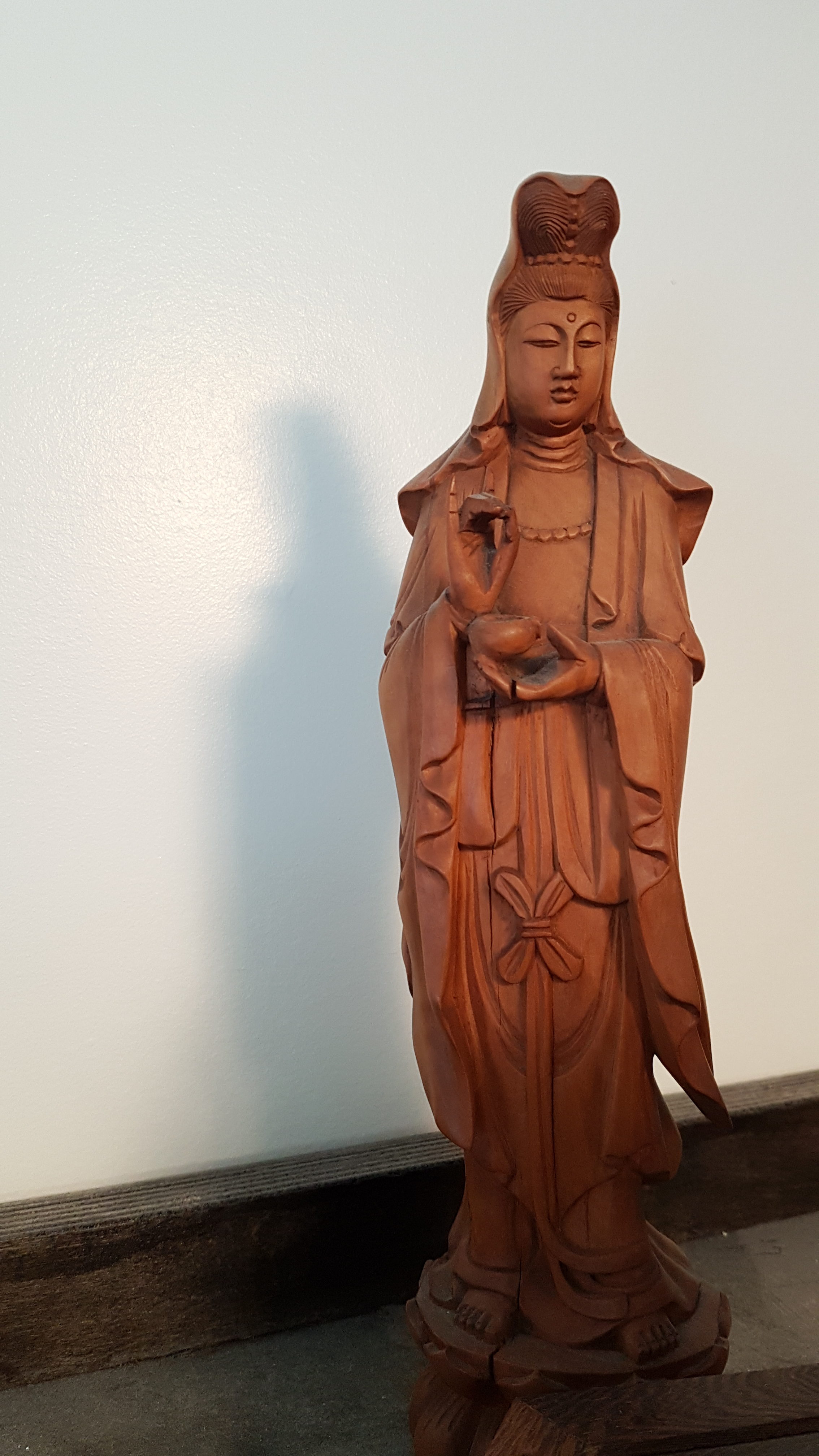
A woodcarving of Guanyin,
the goddess or bodhisattva of compassion
Photo courtesy author
Before they moved to Canada, Chien was a coach and she taught high school physical education. At the time they immigrated, though, they had a young daughter, and they decided they wanted careers that would allow them to spend more time together as a family.
That’s how they came to open the original Formosa Tea House, in Charlottetown, PEI.
As owners of a small business, they would be able to set their own hours, and a tea house seemed like a natural fit, since both Fen and Chien are avid tea drinkers.
“In Taiwan, we drink tea. Here, we drink tea,” says Fen. “Even when traveling, we bring tea. Because tea is good for your health, for your body, everything.”
Their tea house would be the first of its kind in Atlantic Canada, but their business concept met with some bemusement.
“Local people said: ‘Nobody here knows tea,’” recalls Fen. “They just know black tea, and they know green tea.”
Where others saw an obstacle, though, they saw an opportunity – a chance to introduce Atlantic Canadians to the wide range of Taiwanese and Chinese teas, from savoury oolongs and earthy pu’ers to flavourful herbal infusions like ginger and burdock root.
They serve their teas in the Taiwanese style. Free-floating leaves steep in a small pot alongside two tiny cups, one shaped like a bowl and the other like a slender vase. The first is for tasting and the second for smelling.
To fully appreciate Taiwanese tea, you have to engage all your senses.
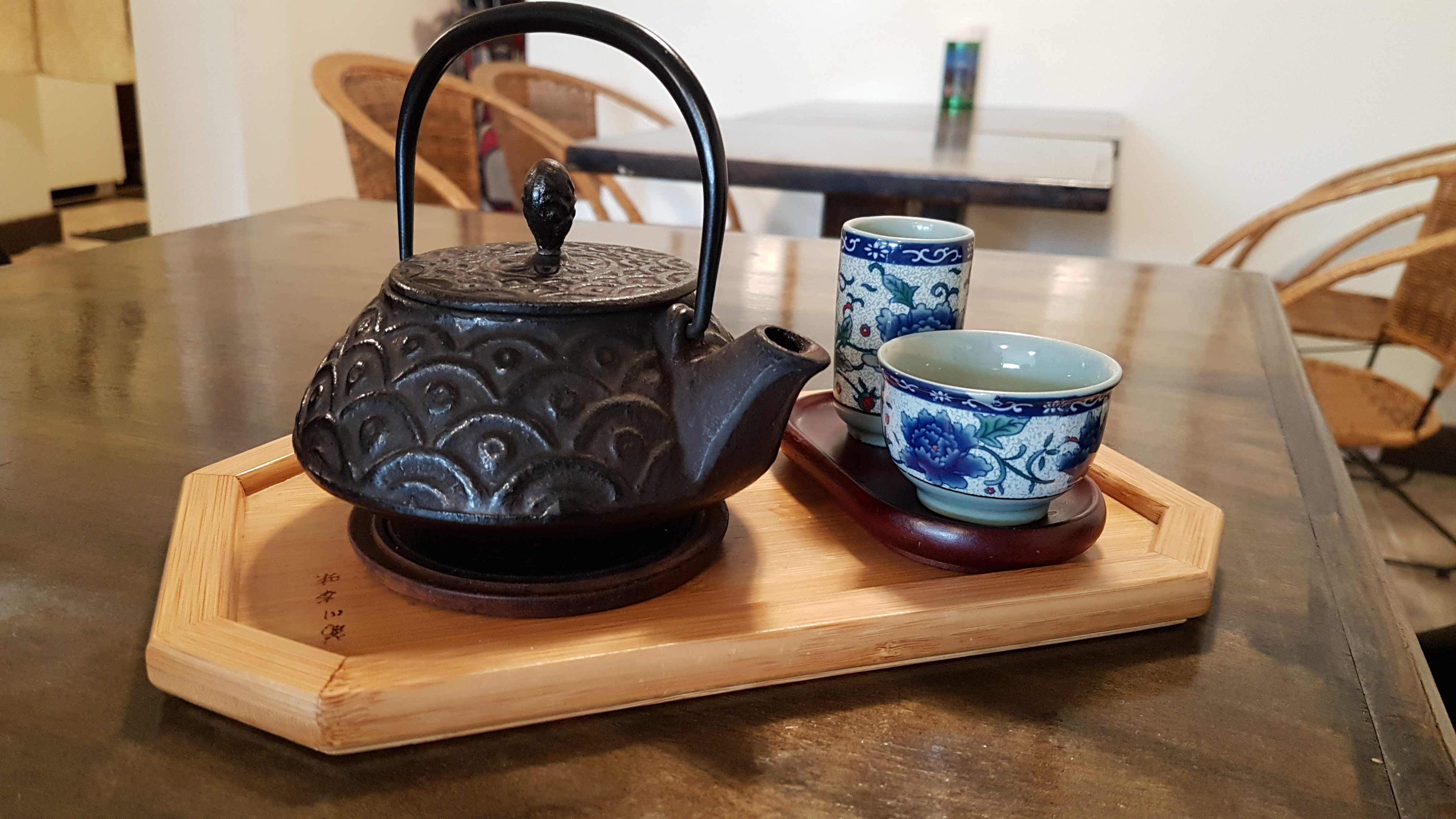
An iron teapot, aroma cup, and tasting cup
are served on a wooden tray
Photo courtesy author
You begin by pouring tea from the pot into the vase-like aroma cup. Then you cap the aroma cup with the tasting cup and, clasping the two together, swiftly turn them upside down, so that the aroma cup is upended inside the tasting cup. You finish by slowly lifting the aroma cup so the tea inside releases into the tasting cup.
Raising the now-empty aroma cup to your nose, you inhale deeply. The cup’s tall, narrow shape condenses and amplifies the scent of the tea. Between sniffs, you can rub the cup between your hands for warmth.
Finally, you can turn your attention to the tasting cup. Make sure you bring it to your eyes to appreciate the tea’s clarity and colour before you press it to your lips for a sip.
The feeling that should linger after you’ve drunk high quality tea is a whole-body sense of being refreshed and energized, Chien has told me. Any tea that leaves you feeling drained or gloomy after drinking should be thrown away. Tea absorbs energy, or qi, from the environment where it’s grown and passes that energy along to the drinker. No matter how flavourful, tea imbued with negative energy is not fit for consumption.
Fen and Chien were right that Canadians could learn to love both the taste of Taiwanese tea and this tranquil ritual of drinking it.
In the decade their tea house in Charlottetown was in business, it grew from a modest café to a bustling 60-seat restaurant. It was a hub of community life. Regular customers even started Canada’s first podcast there, calling it Live from Formosa Tea House.
After ten years in PEI, Fen and Chien closed their restaurant and relocated to St John’s so that Fen could study at MUN. While she worked on improving her English, they decided to open a second Formosa Tea House here.
This time, they plan to keep the tea house small.
“The restaurant was very busy for us,” explains Fen. “We said when we moved here we wanted to enjoy life. So we changed the style and serve only little dim sum.”
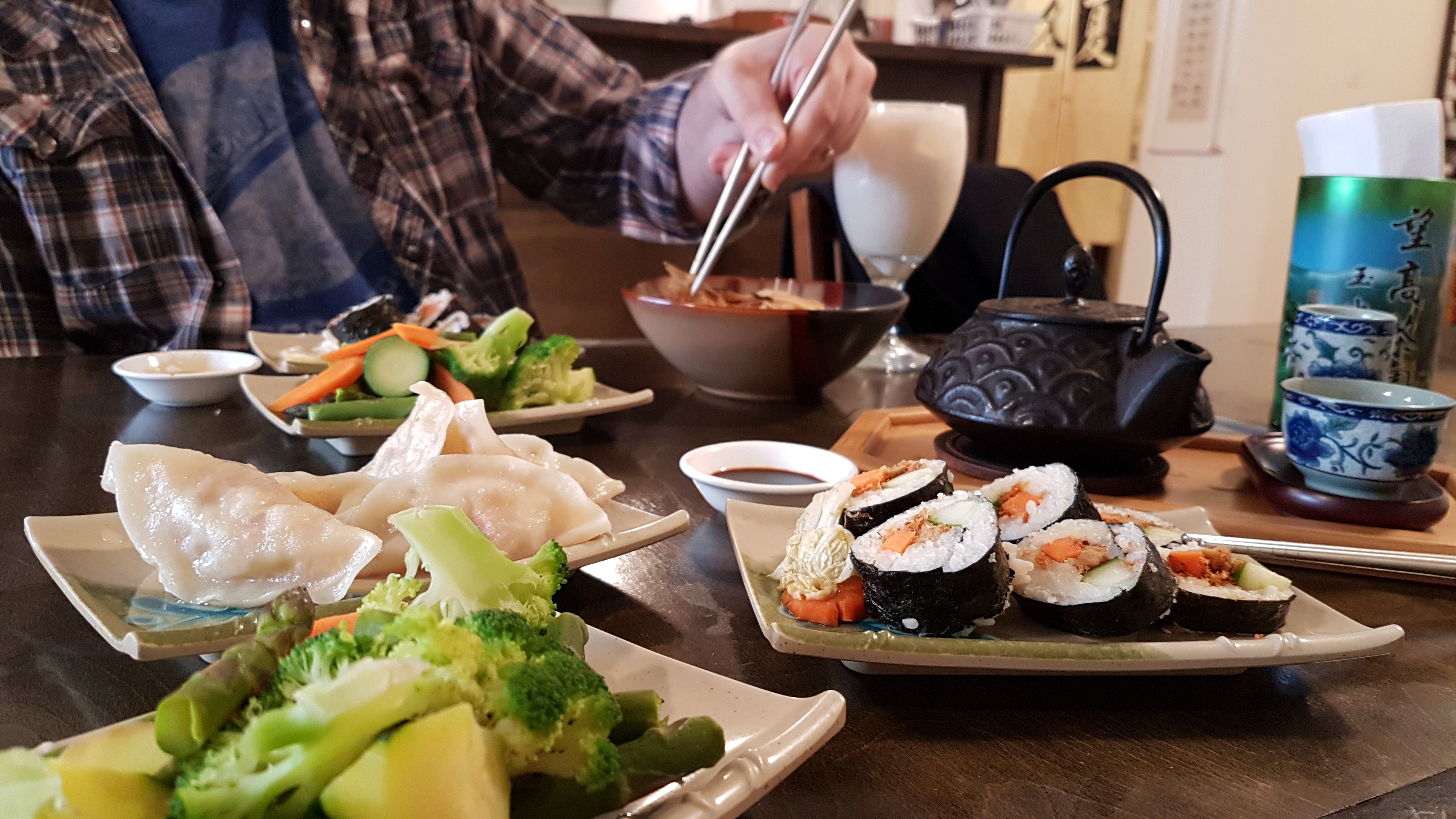
A meal assembled from a
selection of small dishes
Photo courtesy author
Bucking the pressure to expand the business gives the couple time to do the things that matter to them: to stay physically active and engaged in sport, to travel and experience different cultures, and to develop their spiritual lives.
It also gave Chien the leeway to accept an offer to coach Taiwan’s national track and field team. In January, he returned to help them prepare for the Diamond League meet in Doha in May.
Fen is staying in St John’s to run Formosa, at least for now, and she and Chien plan to travel back and forth a few times a year to see each other.
As for me, I’m going to enjoy this charming tea house while we have it. The food is delicious, vegetarian, and inexpensive – not an easy combination to find in this city. The tea is out of this world.
Most of all, in an age of corporate uniformity and carefully constructed experiences, Formosa is unapologetically personal. Through the tea house, Fen and Chien share not only part their culture, but part of themselves.
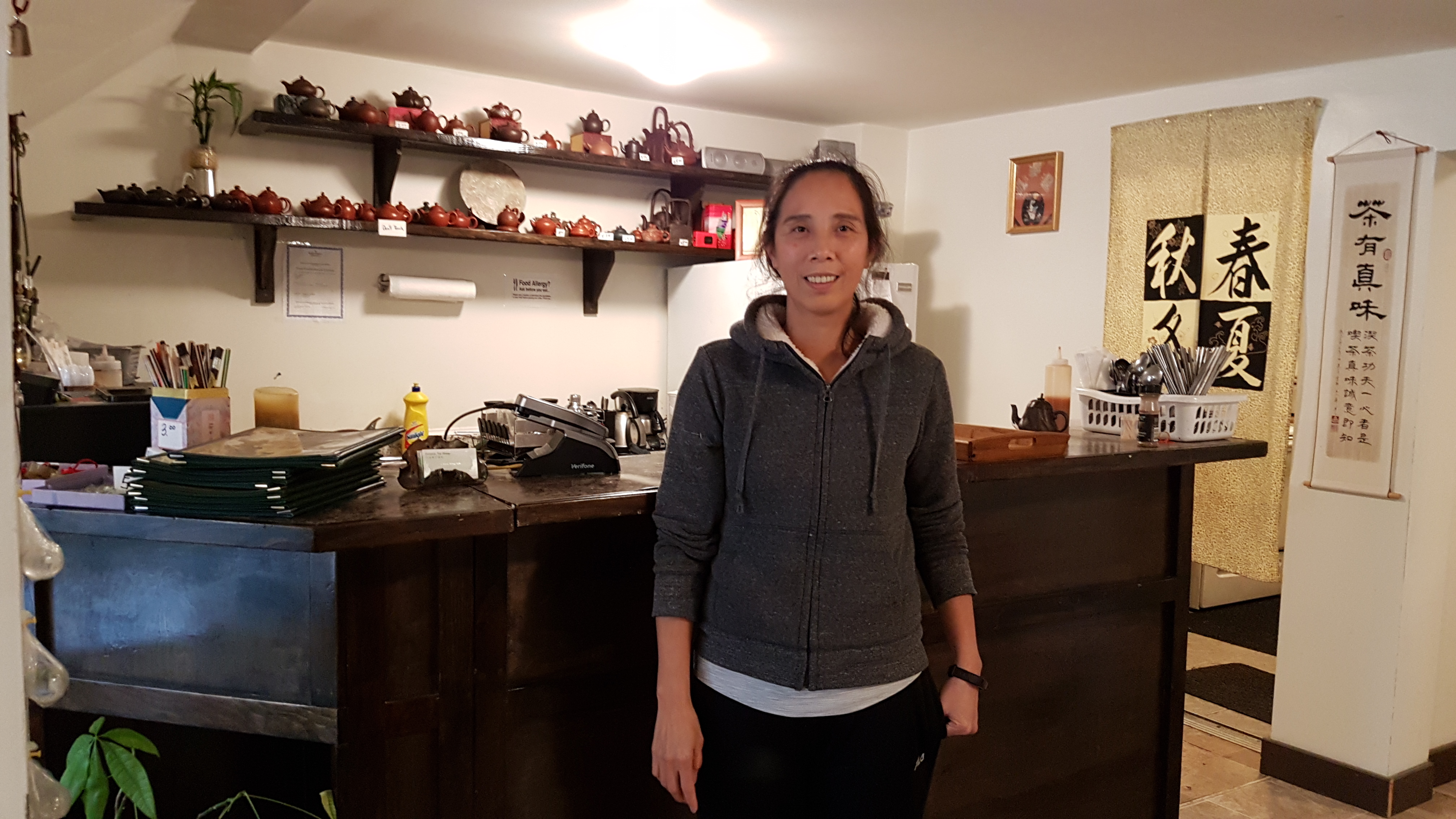
Kuei Fen Kuo,
owner of Formosa Tea House
Photo courtesy author


